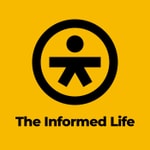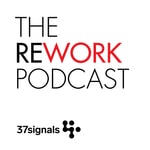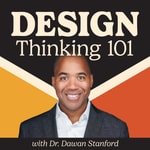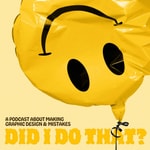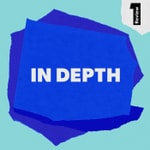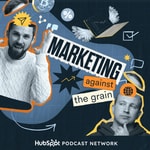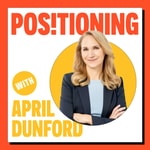The Business of Authority – Details, episodes & analysis
Podcast details
Technical and general information from the podcast's RSS feed.
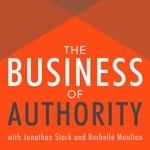
The Business of Authority
Jonathan Stark and Rochelle Moulton
Frequency: 1 episode/7d. Total Eps: 327

Recent rankings
Latest chart positions across Apple Podcasts and Spotify rankings.
Apple Podcasts
🇬🇧 Great Britain - entrepreneurship
04/10/2024#93
Spotify
No recent rankings available
Shared links between episodes and podcasts
Links found in episode descriptions and other podcasts that share them.
See all- https://blacklivesmatters.carrd.co/
2135 shares
- https://simplecast.com/
702 shares
- https://zoom.us/
664 shares
- https://twitter.com/
1351 shares
- https://twitter.com/jonathanstark
401 shares
- https://twitter.com/ConsultingChick
398 shares
RSS feed quality and score
Technical evaluation of the podcast's RSS feed quality and structure.
See allScore global : 58%
Publication history
Monthly episode publishing history over the past years.
It’s A Wrap
Episode 327
lundi 22 avril 2024 • Duration 11:52
We talk about where we’re taking the show and how your feedback will impact our next steps.
It's your chance to reach out (see the links below) and weigh in!
LINKS
Rochelle | Email List | LinkedIn | Twitter | Instagram
Jonathan | Daily List | Website | Ditcherville | LinkedIn | Twitter
April Dunford - Obviously Awesome REPLAY
Episode 326
lundi 15 avril 2024 • Duration 46:28
Do you know how to position your product or service?
Talking Points
- April’s background
- Why positioning is important
- What positioning is
- Email for lawyers
- Problems caused by weak positioning
- How solos can identify positioning problems
- Choosing criteria that ensures clients will be happy in the end
- Positioning the business itself versus individual offerings
- How publishing a book affected April’s inbound leads
- Books as part of the overall business
Quotable Quotes
“There’s branding and there’s positioning. Those two things are totally separate, and in fact, you need to have your positioning sorted out first, before you decide what your branding should be.” –AD
“Now I think there’s more of an awareness around positioning.” –AD
“Now, I’m booked up 3-4 months in advance, my rates are way higher, I work way less, and my clients are way happier, because I only promise to do this one very narrow thing, but it’s a super valuable thing, and if you’ve got this problem, who else you gonna call?” –AD
“If you’re going to make that investment in doing marketing, there should be a call to action in there.” --AD
LINKS
Rochelle | Email List | LinkedIn | Twitter | Instagram
Jonathan | Daily List | Website | Ditcherville | LinkedIn | Twitter
The 5 Things That Happen Right After You Specialize with David C. Baker
Episode 317
lundi 12 février 2024 • Duration 55:17
NOTE: Rochelle and I (Jonathan) couldn't record last week. Rather than give you nothing (or a TBOA repeat) to listen to, I decided to dig through the Ditching Hourly archives and find an episode that long time fans of TBOA would be sure to enjoy.
Here's the info from the Ditching Hourly site:
The “Expertise Expert” himself, David C. Baker, joined me on Ditching Hourly to talk about the five things that happen right after you specialize.
Summary
Here is an AI summary of the key points from the episode:
The episode is a discussion between Jonathan Stark and David C. Baker about positioning and specialization for consultants and professional services firms.
They discuss the importance of niche positioning to stand out, attract ideal clients, see client patterns more clearly, accelerate learning, and always have things to write and talk about.
They outline 5 things that happen after narrowing your business focus:
- You don't instantly become smarter, but your rate of learning accelerates because you start seeing more examples of your niche.
- Impostor syndrome kicks in because you're making expertise-based claims you didn't make before, but this fear is often unfounded because you were willing to work with those clients previously.
- You don't have to turn down unrelated work right away during the transition period, though over time, you'll likely feel unsatisfied with off-target projects.
- You immediately start narrowing your focus even further, fine-tuning your positioning through real-world conversations and testing.
- Counterintuitively, you'll have way more to write and talk about when focused on a niche than as a generalist.
Jonathan and David emphasize that niche positioning is critical before you can effectively differentiate, charge value-based pricing, market yourself, or even decide what content to produce. It brings focus to everything that follows.
About David C. Baker
“The Leading Authority on Positioning, Reinventing, and Selling Firms in the Creative and Digital Space.”
David C. Baker is the author of five books, three of which focus on the central elements of the business of expertise: positioning, financial management, and leadership. David speaks regularly on more than 70 topics relevant to entrepreneurial expertise, from 20 executives to 5,000 live on TV worldwide, and has worked with 900+ firms through his Total Business Review process.
David's Links
- David's Website
- David's book: The Business of Expertise
- David's podcast (with Blair Enns)
- David's article on Specialization
LINKS
Rochelle | Email List | LinkedIn | Twitter | Instagram
Jonathan | Daily List | Website | Ditcherville | LinkedIn | Twitter
Are You Overdelivering?
Episode 227
lundi 25 avril 2022 • Duration 41:11
Our tendency (especially in proposal situations) to acquiesce to client requests—and how to re-direct that for the good of all.
The power and status dynamics surrounding consultants serving clients and what happens if we start treating clients as higher status.
How overdelivering can seep into your firm’s practices and where to nip it in the bud.
Developing a healthy mindset around service delivery, providing value and decoupling your fees from effort.
LINKS
Rochelle | Email List | Soloist Women | LinkedIn | Twitter | Instagram
Jonathan | Daily List | Ditcherville | LinkedIn | Twitter
Quotables
“Your clients are a choice, just like your boss is a choice, but people often forget that walking away is one of the options.”—JS
“You could say: ‘Listen, if we take out this step, I can't guarantee the transformation, and therefore I can't do that for you.’”—RM
“The way to provide value to your clients is not to be obedient—it's to deliver results.”—JS
“The proposal is the dress rehearsal for the engagement.”—RM
“If you let prospective clients push you around in the sales process, it should come as no surprise when they push you around during the project.”—JS
“The more that you consider yourself low status relative to clients, the worse you're going to feel about it.”—RM
“There's so much ‘the customer's always right’ psychology. "Wouldn't it be better to give them more than less?" No, it really wouldn't.”—JS
“This is about leveraging what you have—not playing status games that have you overdelivering and creating relationships that don't work for you.”—RM
Links
Tara McMullin's Instagram piece on over-delivering
RESOURCES
Rochelle | Email List | Soloist Women | LinkedIn | Twitter | Instagram
Jonathan | Daily List | Website | Ditcherville | LinkedIn | Twitter
LINKS
Rochelle | Email List | LinkedIn | Twitter | Instagram
Jonathan | Daily List | Website | Ditcherville | LinkedIn | Twitter
Bad Grammar—Should You Bend The Rules?
Episode 226
lundi 18 avril 2022 • Duration 31:09
Why using perfect grammar in a sales pitch or conversation still won’t guarantee you the deal.
How to use grammar and language to communicate and persuade vs. to impress (and the role of status games).
Why simplicity makes it easier to get the result you want.
The role of grammar in expressing your brand and setting client/audience expectations.
Quotables
“You could do a sales pitch or a sales interview and use perfect grammar throughout and still not land the deal.”—JS
“You adjust your language to meet them where they are.”—RM
“You're not looking for an A+ on a book report. You're trying to get someone to change.”—JS
“This is really more about simplicity and getting the result that you want.”—RM
“It's all about communicating it to them in a way that is going to be digestible and not activate status roles.”—JS
“Who's your audience? How do they communicate? What kinds of words are too big and too much?”—RM
“If what you want is for the listener or the reader or the viewer to do something, then the most important thing is producing that action.”—JS
“Language is part of the toolkit of a consultant or anyone who's trying to make transformational change in an audience.”—RM
LINKS
Rochelle | Email List | LinkedIn | Twitter | Instagram
Jonathan | Daily List | Website | Ditcherville | LinkedIn | Twitter
When It’s Time To Un-Stick Yourself
Episode 225
lundi 11 avril 2022 • Duration 36:31
Getting yourself the endorphin rush from physically getting up and going outside or meeting a friend.
How to keep pushing the envelope even as you’re doing the routine things that make your business run.
Why that feeling of putting your “baby” out there can feel crazy-scary—and how to do it anyway.
How to tell the difference between when you’re laying groundwork for your next thing or just burning daylight.
LINKS
Rochelle | Email List | Soloist Women | LinkedIn | Twitter | Instagram
Jonathan | Daily List | Ditcherville | LinkedIn | Twitter
Quotables
“It was so much fun…I noticed that I felt like this total endorphin rush, I was in the best mood.”—JS
“I've so trained myself into this virtual be efficient work from zoom/have phone conversations mode that it was almost like upsetting the apple cart to go to an in-person meeting.”—RM
“It's not too bad to have an idea and then, like roughly a quarter later, launch it.”—JS
“It doesn't mean that we don't double down on the things we're good at, but we just keep pushing that envelope on some level.”—RM
“Talk to people like: ‘Hey, I've got three ideas for my next workshop I'm going to launch. Which one seems the most exciting to you?’”—JS
“I'm waiting for somebody to write and go ‘Yeah, this is a stupid idea. And I don't ever want to hear from you again.’”—RM
“If you can introduce really smart, fun people into the process (of getting outside), that sounds like a really good routine to get into.”—JS
“There's always going to be those periods (of laying groundwork), but the ideal is that they're moving you towards something else, even if you're pulling your hair out while you're going through them.”—RM
LINKS
Rochelle | Email List | LinkedIn | Twitter | Instagram
Jonathan | Daily List | Website | Ditcherville | LinkedIn | Twitter
When Your Book Is Last
Episode 224
lundi 4 avril 2022 • Duration 34:34
Why book as business card is not the book that will still be relevant and valuable in 20-30 years.
How to introduce your book content to ideal readers so they can help you use the right language, examples and stories.
Using your book idea to build a tribe of support for your eventual launch.
Positioning your book so it has a built-in base of readers—and is attractive to potential publishers.
The benefits from teaching your material before you ever start writing the actual book.
Quotables
“I think this is more reliable path to write a book that could theoretically be still getting read 20 years from now.”—JS
“If you're going to pitch your book to a publisher, they want to know: how does this book position against these other (competitive) books?”—RM
“What you want is feedback from people who are hearing your stuff for the first time.”—JS
“You need a launch team—you need a bunch of people supporting your book to help make it successful.”—RM
“They might tell me my baby's ugly, but that's what I want. I don't wanna write the book and then find out that my baby's ugly.”—JS
“It (a webinar) gives you a lot of experience with talking about the book and getting comfortable, listening and synthesizing what they're saying.”—RM
“If people do show up for your webinar, you're getting a head start on your marketing language for the book itself.”—JS
“For the kind of book that we're talking about, you've gotta have some other people invested in its success—where they get excited about it, they want to share it.”—RM
LINKS
Rochelle | Email List | LinkedIn | Twitter | Instagram
Jonathan | Daily List | Website | Ditcherville | LinkedIn | Twitter
Get Different with Mike Michalowicz
Episode 223
lundi 28 mars 2022 • Duration 26:54
How books have been a pivotal source of his authority (and a substantial slice of his overall revenue).
The role of his communities in concepting and testing book ideas—and why members who aren’t super fans are especially valuable.
Why incremental and real-life experiments are so critical to testing new ideas.
The value of going for small wins—even when complexity is the “better” solution.
Why being better is not enough.
LINKS
Rochelle | Email List | Soloist Women | LinkedIn | Twitter | Instagram
Jonathan | Daily List | Ditcherville | LinkedIn | Twitter
Quotables
“The stuff I put in my books is the same stuff I share on stage or on a podcast. But they're devalued when we hear the voice, it's eh, but once it's in a book, it becomes biblical for some reason.”—MM
“Why I’ve written so many (books) is I am working on any number at any given time, usually three to four in the works.”—MM
“The book is the starting point for lead flow, but it's the end point of the knowledge. It's the best of what I have accumulated.”—MM
“I use my subscribers and say, “Hey, we're going to concept—who's willing to try this out?” But I will, to some degree, intentionally exclude people who’ve tried stuff out in the past, trying to always approach new people and learn from them.”—MM
“What a lot of people do in their writings is they make it so it's not palatable and you lose the reader before you even get a chance to serve them.”—MM
“All my books are based upon this concept of quick, easy deployment.”—MM
“Being better is not enough. But many of us rely on that, we say we are better. Why don't we gain more business? We have to be noticeable.”—MM
“The only experience people have with us before doing business with us is our marketing. And if our marketing is inconsistent with the actual brand experience, there's a mistrust that's going to happen.”—MM
LINKS
https://mikemichalowicz.com/
LINKS
Rochelle | Email List | LinkedIn | Twitter | Instagram
Jonathan | Daily List | Website | Ditcherville | LinkedIn | Twitter
Ask Us Anything 5
Episode 222
lundi 21 mars 2022 • Duration 42:16
When moving from freelancing to consulting, how should I approach building my website portfolio? What kinds of best practices do you suggest?
How do I make sure I don’t lose my technical edge as I transition to more strategic consulting?
I’m not comfortable traveling or mingling with people whose vaccination and cautiousness status I don’t know—and yet it feels like everyone in my industry is anxious to attend events again. Is it possible to grow my authority business 100% virtually?
I’ve built a YouTube audience of 2,000 and an email list of about 1,000 by sharing a passion of mine. While I love doing it, it’s eating up more of my time and I’d like to monetize this—where should I start?
Quotables
“Encourage the client to share specific benefits—probably with numbers—some kind of absolute or relative numbers of the improvement that they attribute to your contribution.”—JS
“Think of your website, not as static, but as a living breathing thing.”—RM
“You can go into the lab and when there's something big—something game-changing—that enables new things for you that your clients care about.”—JS
“It's a little bit like riding a bicycle. You can not have ridden one for 10 years, but when you get back on you remember how to steer, you remember where your feet go. You know what to do.”—RM
“Think of someone who you perceive as an authority. Have you ever met them? Probably not. Have you even been to a conference where they were? Probably not.”—JS
“You can become an authority pretty much entirely virtually IF you design your business model to match that.”—RM
“It gets down to who needs, who stands to benefit the most from your superpower and how different do they perceive you to be in terms of the options for solving this problem.”—JS
“When talking to people who are already engaged in your worldview, they've signed on. And they're going to tell you what they want, not just from anybody to solve the problem, but what they want from you.”—RM
LINKS
Rochelle | Email List | LinkedIn | Twitter | Instagram
Jonathan | Daily List | Website | Ditcherville | LinkedIn | Twitter
The Dark Side Of Referrals
Episode 221
lundi 14 mars 2022 • Duration 33:04
Why relying on referrals is a passive strategy with few controls—and a dangerous hidden cost.
The difference between referrals and word of mouth from your authority-building efforts.
The one exception where a referral system can be exactly the right approach (and it applies to a VERY small slice of experts).
Why investing in broader market moves (e.g. publishing and speaking) will bring you business faster and more reliably than courting referrals.
LINKS
Rochelle | Email List | Soloist Women | LinkedIn | Twitter | Instagram
Jonathan | Daily List | Ditcherville | LinkedIn | Twitter
Quotables
“I'm like a control freak. I don't want to depend on maybe somebody sends someone my way…”—JS
“I always help people if I can, but there's a limit to what you can do for any one person before you have to turn the meter on.”—RM
“Like the difference between a hunting model and a gardening model, the word of mouth authority marketing is a gardening model.”—JS
“Referrals are a long-term play—and they’re so uncontrollable.”—RM
“I cannot stand this feeling of just hoping the phone rings.”—JS
“If you're operating on an old model (and you haven’t positioned yourself well), depending on referrals is going to get worse.”—RM
“It's that word of mouth that I would rather have, and it is more predictable than referrals—it’s more like tomatoes coming out of the garden.”—JS
“There's such a difference in somebody who comes to you because of the authority that you've built—they come to you basically pre-sold.”—RM
LINKS
Rochelle | Email List | LinkedIn | Twitter | Instagram
Jonathan | Daily List | Website | Ditcherville | LinkedIn | Twitter

